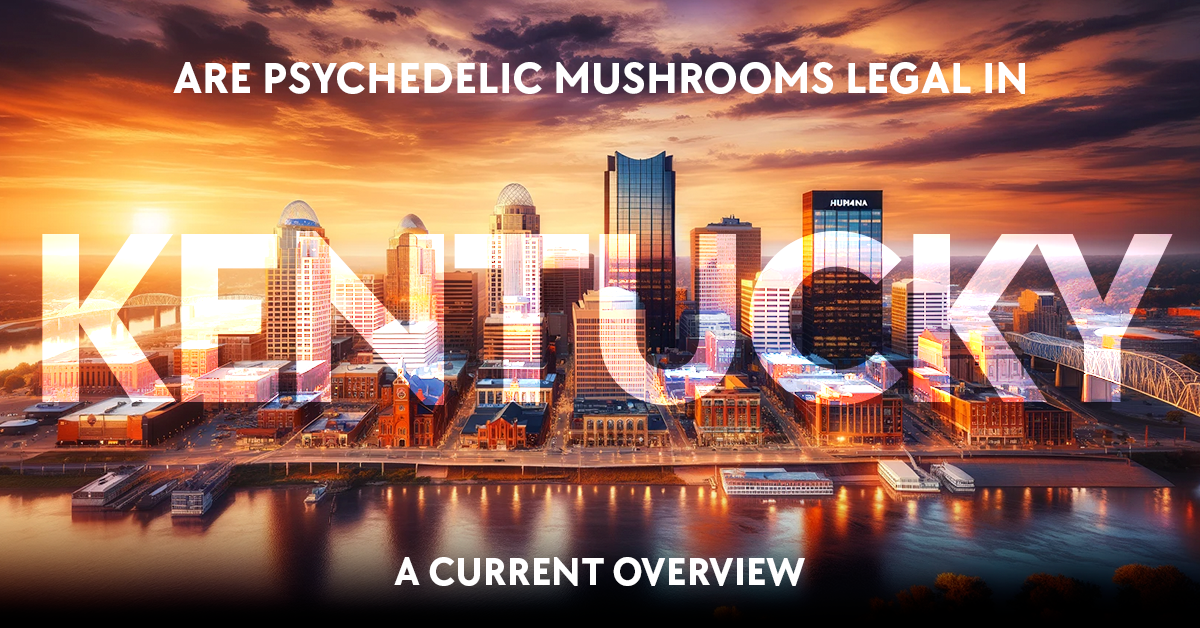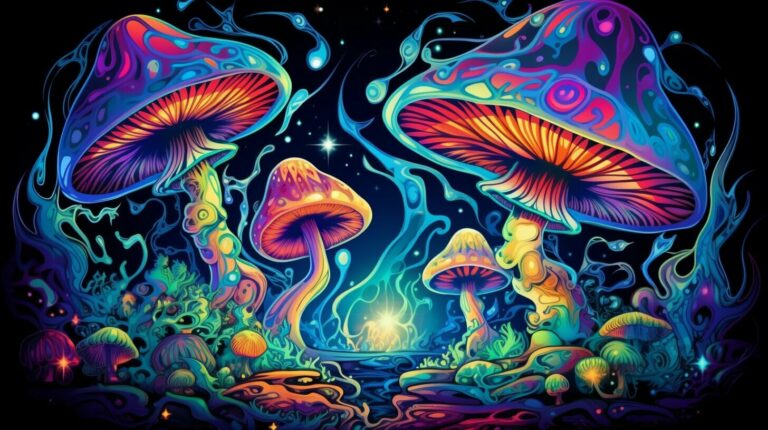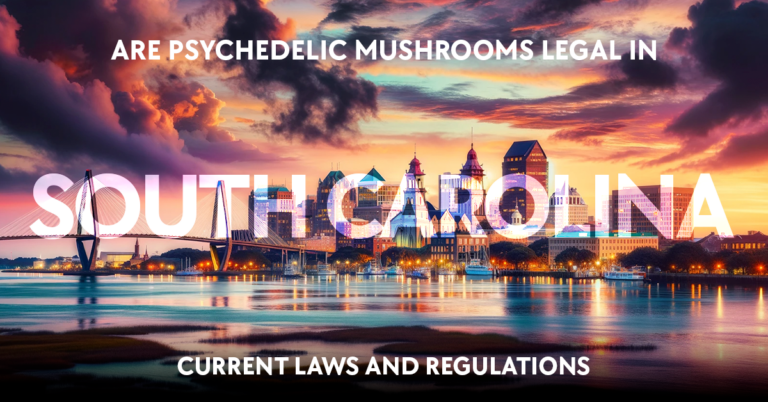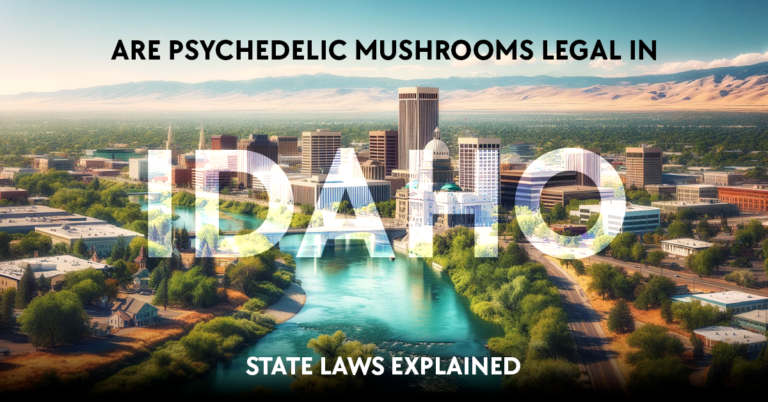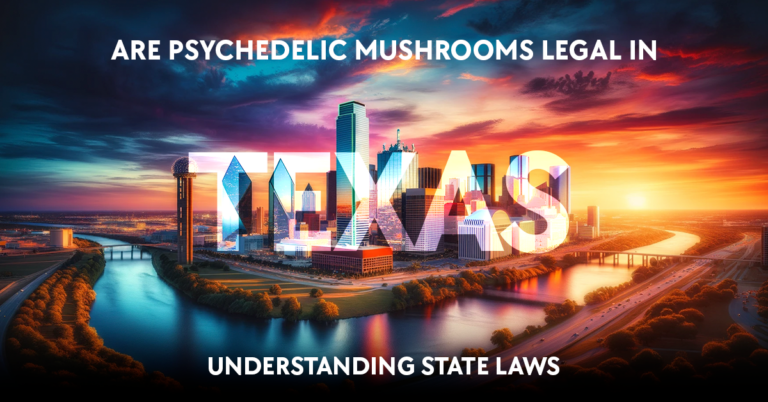When you’re trying to understand the legal status of psilocybin mushrooms in Kentucky, it’s important to start with the basics. Psilocybin mushrooms, often known as magic mushrooms, contain the psychedelic compound psilocybin, which has been subject to debate both medically and legally. In the United States, Kentucky included, psilocybin remains a Schedule I controlled substance under federal law, making it illegal to possess, distribute, or cultivate these mushrooms.

In Kentucky, the law is clear: psychedelics, including psilocybin mushrooms, are illegal. Possession and sale of these substances come with severe penalties. Despite ongoing research into potential therapeutic benefits of psychedelics, and reforms in some states regarding their legal status, your home state of Kentucky has not changed its stance on this matter.
Understanding the current legal landscape is crucial if you are considering any activities related to psilocybin mushrooms in Kentucky. Although some movements aim to reevaluate the status of certain substances based on new research and social perspectives, these changes take time and, as of now, the state’s position remains unchanged. Always stay informed of the most recent laws and policies to ensure compliance with state and federal regulations.
Psilocybin Legality in Kentucky
Table of Contents
https://www.youtube.com/watch?v=kFpM6X1UU40&embed=true
Understanding the legal landscape of psilocybin mushrooms in Kentucky is essential for anyone considering their use. Both state and federal laws dictate their legality and the penalties associated with possession or sale.
State Laws on Psilocybin Mushrooms
In Kentucky, psilocybin is classified as a Schedule I controlled substance, which means that it’s illegal to possess, sell, or use. Kentucky has not passed laws to decriminalize psilocybin, and any involvement with these mushrooms can lead to significant legal consequences. Possession of psilocybin mushrooms is typically considered a felony, which may result in severe penalties including imprisonment and hefty fines.
Federal Regulations and Classification
Federally, psilocybin remains a Schedule I controlled substance under the Controlled Substances Act. This classification indicates that psilocybin is deemed to have a high potential for abuse, no currently accepted medical use in treatment in the United States, and a lack of accepted safety for use under medical supervision. The act of sale or distribution of psilocybin mushrooms could lead to federal charges, with penalties equally as harsh as those at the state level. Despite ongoing research into potential therapeutic uses, there has been no change in federal policy regarding the decriminalization of psilocybin.
Psychedelic Drug Classification and Penalties
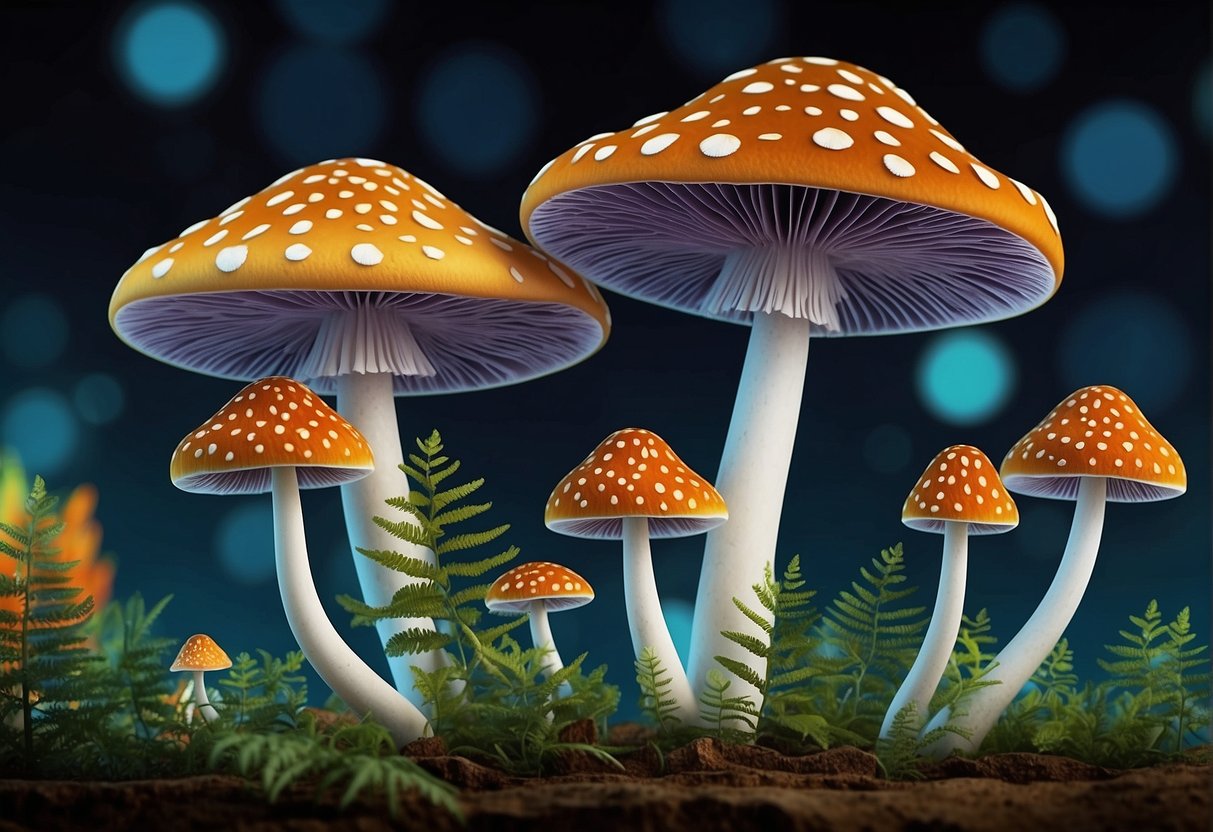
Understanding the legal framework surrounding psychedelic substances, such as psilocybin, is important if you’re navigating the complex area of drug law. This includes knowing how these substances are classified at both federal and state levels, and the corresponding penalties for possession or distribution.
Controlled Substances Act
Psilocybin, the active component in psychedelic mushrooms, is classified under the Controlled Substances Act as a Schedule I controlled substance. This category is reserved for drugs with a high potential for abuse, no currently accepted medical use in treatment in the United States, and a lack of accepted safety for use under medical supervision. As a Schedule I substance, manufacturing, distribution, or possession of psilocybin carries severe penalties including significant prison time and substantial fines.
Kentucky State Penalties for Psilocybin
In Kentucky, the law maintains a stringent stance against psychedelic drugs like psilocybin. Being caught in possession of a Schedule I substance can lead to state-level criminal charges. Depending on the amount you’re found with, you may face a felony charge, which can result in years of prison time and thousands of dollars in fines. For more specific information about how these laws are applied, you can refer to Addicted to Drug Control: The History of American Drug Prohibition and Top trends in criminal justice reform, which elaborate on the evolution of drug policy and its impacts on modern legislation.
Therapeutic Uses and Research
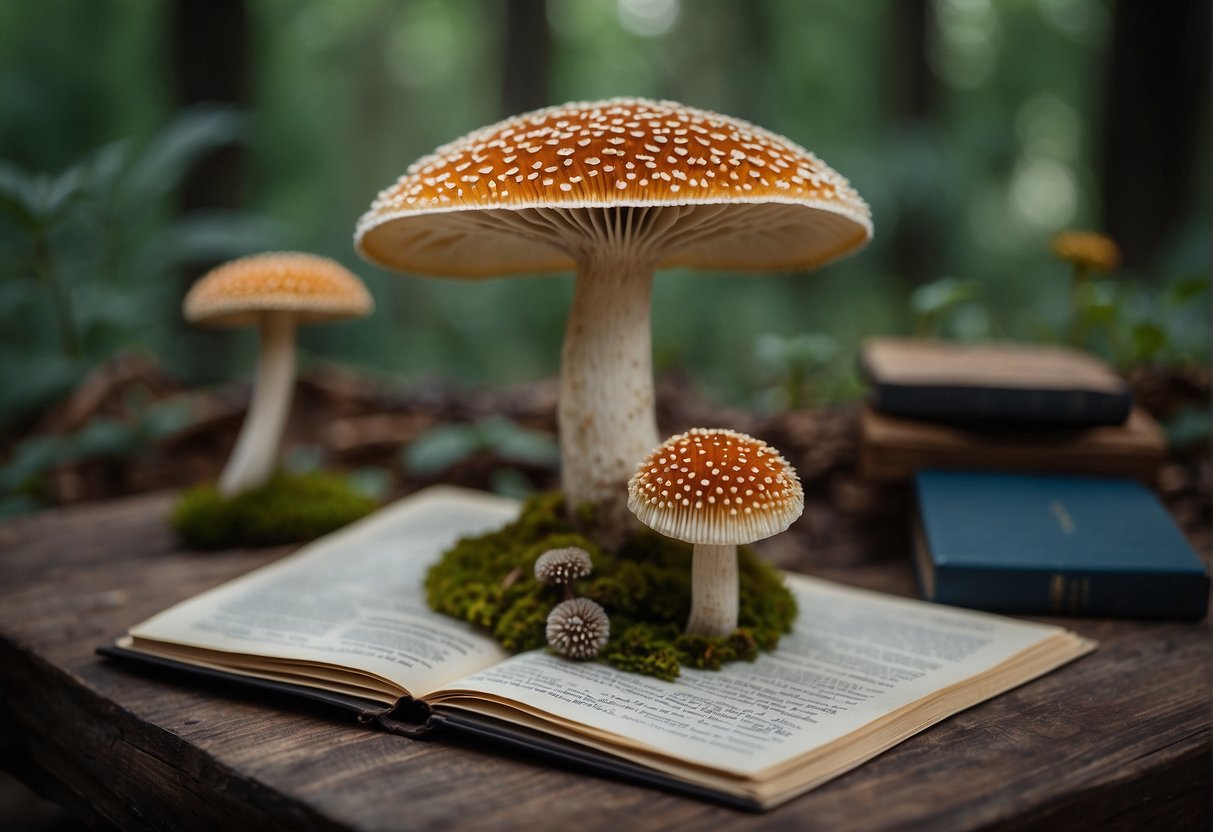
Exploring the therapeutic uses and ongoing research surrounding psilocybin—a compound found in psychedelic mushrooms—is essential to understanding its potential in medicine and mental health. Your awareness of its application and the scientific studies behind it could be beneficial if you’re considering its implications.
Recent Studies on Psilocybin
Research into psilocybin has gained momentum, with studies focusing on its ability to treat a range of mental health conditions. One notable research article assessed the abuse potential of psychedelic drugs, touching upon psilocybin’s mechanisms of action and therapeutic effects. Recent studies suggest that under controlled settings, psilocybin-assisted therapy could help manage depression and anxiety, especially in those who haven’t responded to traditional treatments.
Psilocybin Therapy for Mental Health Conditions
Therapeutic applications of psilocybin are under investigation for various mental health conditions, including depression, anxiety, and PTSD. Clinical trials have also been examining its use in reducing existential anxiety among terminally ill patients. The therapy typically involves a structured setting with medical supervision where participants may receive a psilocybin prescription as part of their treatment. While this research is promising, it’s important to note that its legality varies, and psilocybin remains a controlled substance under federal law, affecting its medicinal application.
Decriminalization Movements and Legalization Efforts
In the landscape of American drug policy, a clear trend is emerging where advocacy groups are increasingly calling for the decriminalization and legalization of psychedelic drugs, with some states already making pivotal changes. Your understanding of the legal status of psychedelic mushrooms hinges on the evolving dialogue between lawmakers, citizens, and the broader societal push towards reform.
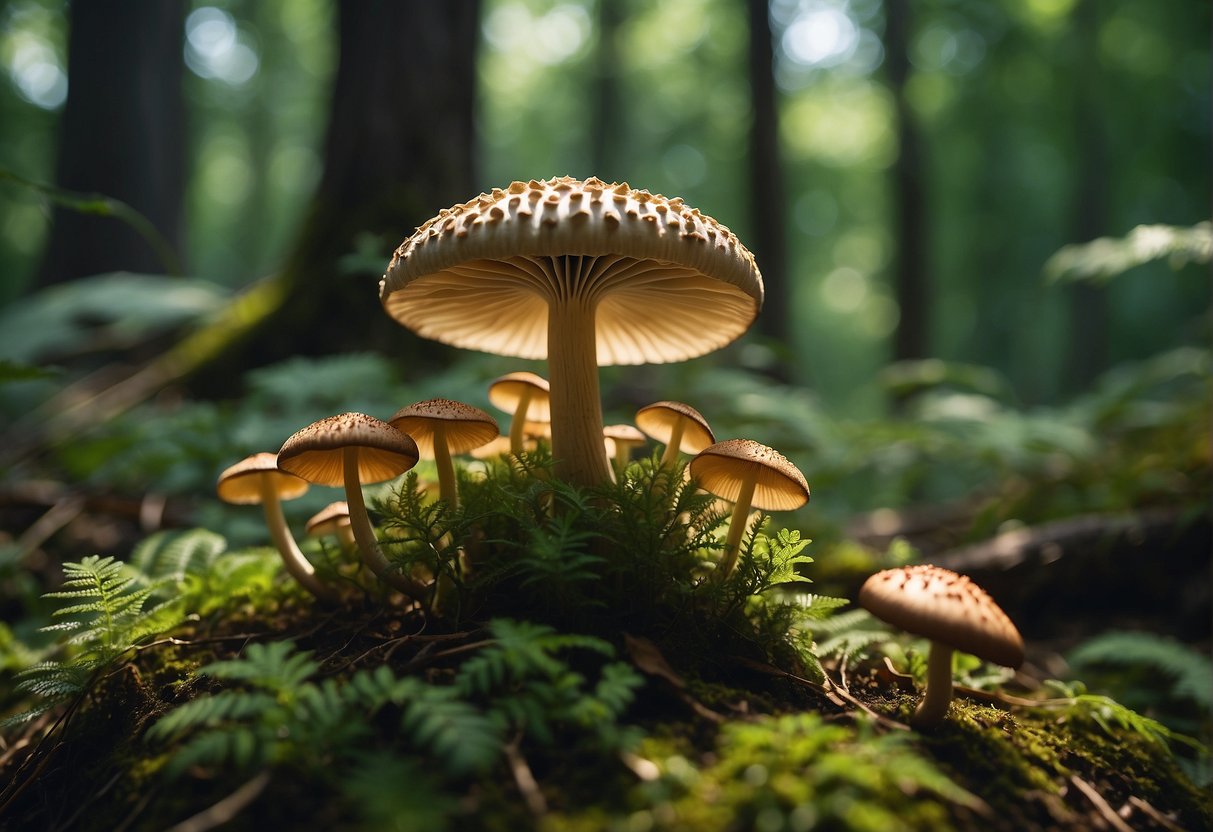
Advocacy for Decriminalization
Advocacy groups are instrumental in propelling decriminalization movements forward. These organizations argue that decriminalizing psychedelic drugs can reduce the burden on the legal and prison systems, redirecting funds towards education and addiction support services. For instance, in cities like Denver, Oakland, and Santa Cruz, efforts have led to the decriminalization of psilocybin, the psychoactive compound in psychedelic mushrooms. Advocates in Kentucky are observing these changes and are working to introduce similar legislation.
Current Decriminalization Efforts:
- Denver, CO: First U.S. city to decriminalize psilocybin (2019).
- Oakland, CA; Santa Cruz, CA: Decriminalized all entheogenic plants, including mushrooms.
- Ann Arbor, MI: Council passed a resolution to decriminalize psychedelic plants and fungi.
Status of Legalization in Other States
When exploring legalization, it’s important to differentiate between decriminalization and legalization. Decriminalization typically reduces or removes penalties, while legalization allows for distribution and sale within a regulated system. States like Oregon have moved beyond decriminalization by legalizing psilocybin for therapeutic use at licensed facilities. Different states are at various stages of this movement:
| State | Status |
|---|---|
| Oregon | Legalized psilocybin for therapy (2020) |
| California | Introduced bills for decriminalization |
| Massachusetts | Legislative efforts for decriminalization ongoing |
| New York | Numerous decriminalization bills proposed |
Medical marijuana is often seen as a legislative precursor to the decriminalization of other drugs. In states like Colorado, Washington, and Vermont, which have passed medical marijuana laws, activists are optimistic about the prospects of decriminalizing other psychedelic substances. Your awareness of these nuances is essential in grasping the complex and dynamic nature of drug policy reform in the United States.
Comparison with Other Psychedelics and Substances
In understanding the legal landscape of psychedelic mushrooms in Kentucky, it’s crucial to examine how they stand in relation to other psychoactive substances. This comparison not only includes the legal status but also the regulatory patterns and public perception which influence legislation and enforcement.
Legal Status of LSD and Other Entheogens
Psychedelic mushrooms and LSD are both classified as Schedule I drugs under the Federal Controlled Substances Act, indicating a high potential for abuse and no accepted medical use. In Kentucky, these substances are illegal for recreational use. Other entheogens, such as DMT and mescaline, fall under the same category. Substances like ketamine and MDMA are listed as Schedule III and Schedule I drugs respectively, meaning ketamine has a recognized medical use unlike MDMA, yet is still subject to strict controls.
- LSD – Schedule I drug
- Psychedelic Mushrooms – Schedule I drug
- DMT – Schedule I drug
- Mescaline – Schedule I drug
- MDMA – Schedule I drug
- Ketamine – Schedule III drug
Pattern of Substance Regulation and Public Perception
The regulation of substances like cannabis and kratom showcases a complicated pattern where legal status can vary greatly between states and over time. Cannabis, for instance, remains illegal under federal law (as a Schedule I substance) but has been legalized for medicinal or recreational use in multiple states, not including Kentucky. Public perception plays a pivotal role, with a growing acceptance leading to changes in prohibition laws, especially as research into addiction and the potential therapeutic benefits of these drugs, like with ayahuasca and ibogaine, continues to evolve.
- Cannabis—Illegal federally, varying legality across states
- Kratom—No federal classification, legality varies by state
Substance regulation reflects a complex web of public health considerations, legal precedents, and shifting societal attitudes. Your understanding of this framework gives context to the current status of hallucinogenic drugs within Kentucky and beyond.
Cultivation and Distribution of Psilocybin Spores
The intricacies of laws concerning psilocybin spores, often synonymous with mushroom spores, are complex given their unique legal status. While federal regulation significantly influences the legality of these spores, state laws, including those in Kentucky, have specific statutes that control their possession, cultivation, and distribution.
Legality of Possessing Mushroom Spores
Psilocybin mushroom spores are in a gray area of the law because they do not contain psilocybin themselves, the substance that makes mushrooms psychedelic. Under federal regulation, it is generally legal to purchase and possess psilocybin mushroom spores for educational and research purposes. However, once the spores are germinated and begin to grow, they become illegal. In Kentucky, the current stance aligns with federal guidelines. You should stay informed about both the state senate and house developments, as laws surrounding psychedelics are subject to change.
Constraints on Cultivating and Distributing
The actual cultivation and distribution of psilocybin mushrooms are where legal matters become nuanced. While possessing mushroom spores is permissible at the federal level for research, the cultivation of these spores into psilocybin-producing mushrooms falls into illegal activity. Therefore, even if you legally obtain psilocybin mushroom spores, you cannot legally germinate or cultivate them. Any act of cultivating or distributing the resulting mushrooms is subject to the scrutiny of both federal and state law, with serious legal repercussions if violated. In Kentucky, ensure that you are aware of the stark difference between the legality of spores and the mushrooms they produce.
Historical and Cultural Context of Psychedelics in Kentucky
When you explore the intertwining history and cultural aspects of psychedelics in Kentucky, you’ll find a past that reflects a complex relationship with substances like magic mushrooms. This backdrop plays a significant role in the current legal and societal status of psychedelics within the state.
Traditional Use of Psychedelics
Psychedelics, particularly magic mushrooms, have long had a spiritual and medicinal role in many cultures. In Kentucky, however, there’s no specific indigenous record that signifies the traditional use of psychedelics. However, it’s important to realize that Native American tribes across the continent did use various natural psychedelics, and it’s possible that similar practices occurred silently in Kentucky’s pastures and woodlands. You may find anecdotes of natural psychedelics being present and potentially utilized in informal historical accounts.
Modern Cultural Perception in the Bluegrass State
Today, the cultural perception of psychedelics like shrooms in Kentucky, often referred to as the Bluegrass State, is one that’s marked by a hesitancy rooted in legalities and societal norms. Despite evolving attitudes towards natural remedies and mental health treatments, including the potential of psychedelics to address issues like post-traumatic stress, their use remains under a legal cloud. Cultural views have started shifting as medical research and personal anecdotes of healing and transformation circulate, although this progress is slow and careful within the historically conservative region. The presence of psychedelic substances in Kentucky is often linked to the characteristic bluegrass filled pastures, yet despite this natural abundance, legal acceptance lags behind growing cultural curiosity.
Frequently Asked Questions
In Kentucky, the legal framework regarding psilocybin mushrooms is strict. It’s important to understand the specifics so you can navigate the laws effectively.
What is the current legal status of psilocybin mushrooms in Kentucky?
Psilocybin mushrooms are classified as Schedule I controlled substances in Kentucky, which means they are illegal to possess, sell, or distribute.
Can individuals possess or cultivate psilocybin mushrooms for personal use under Kentucky state law?
No, you cannot legally possess or cultivate psilocybin mushrooms for personal use in Kentucky. Doing so can result in criminal charges.
Are there any medical or therapeutic exceptions for the use of psychedelic mushrooms in Kentucky?
Currently, there are no medical or therapeutic exceptions for the use of psychedelic mushrooms in Kentucky. They are not recognized for medical use under state law.
What are the potential legal consequences of distributing psilocybin mushrooms in Kentucky?
Distributing psilocybin mushrooms in Kentucky can lead to severe legal repercussions, including felony charges, fines, and imprisonment.
Has there been any legislation proposed in Kentucky regarding the decriminalization or legalization of psychedelic mushrooms?
There has been no successful legislation proposed to decriminalize or legalize psilocybin mushrooms in Kentucky as of now.
Does Kentucky law differentiate between the various forms of psilocybin, such as mushrooms, extracts, and synthetic compounds?
Under Kentucky law, all forms of psilocybin, whether as mushrooms, extracts, or synthetic compounds, are illegal and classified as Schedule I substances.

